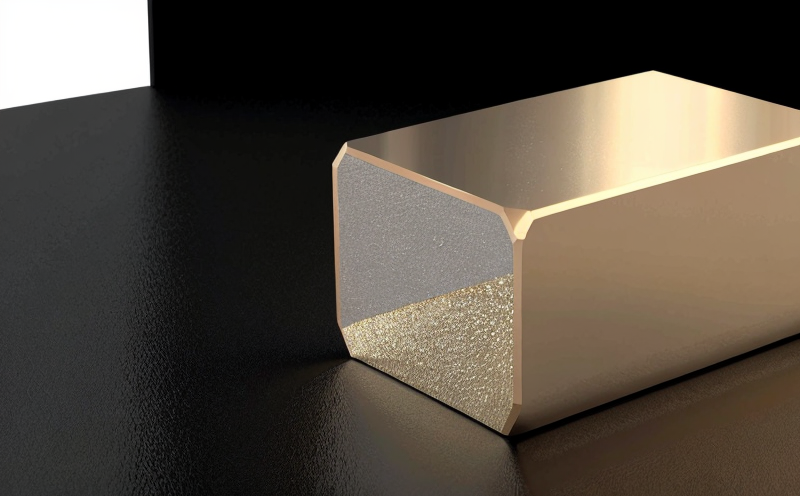Notch sensitivity of materials used in high-pressure applications
The Critical Factor in High-Pressure Applications Notch Sensitivity of Materials
In the world of high-pressure applications, materials play a crucial role in determining the success or failure of critical infrastructure and equipment. One key factor that often goes unnoticed is the notch sensitivity of materials used in these applications. Notch sensitivity refers to the materials susceptibility to stress concentration at notches or cracks, which can lead to catastrophic failures under pressure.
At Eurolab, we understand the significance of notch sensitivity in high-pressure applications and offer a comprehensive laboratory service to assess the notch sensitivity of various materials. In this article, we will delve into the importance of notch sensitivity testing, its benefits, and how our laboratory service can help businesses ensure the reliability and safety of their equipment.
What is Notch Sensitivity?
Notch sensitivity is a measure of a materials ability to withstand stress concentrations at notches or cracks. When a material is subjected to external pressure, internal stresses are generated, which can concentrate at notches or defects in the material. If the notch sensitivity of the material is high, even small notches can lead to significant reductions in strength and potentially catastrophic failures.
Why is Notch Sensitivity Testing Essential for Businesses?
In high-pressure applications, the consequences of material failure can be severe, including damage to equipment, loss of production time, and even human life. By understanding the notch sensitivity of materials used in these applications, businesses can
Ensure Equipment Reliability Regular notch sensitivity testing helps identify potential weaknesses in materials, enabling businesses to replace or upgrade components before failures occur.
Minimize Downtime Identifying notch-sensitive materials early on allows for proactive maintenance and replacement, reducing the likelihood of equipment failure and minimizing downtime.
Protect Human Life By assessing notch sensitivity, businesses can ensure that their equipment is safe for use in high-pressure applications, reducing the risk of accidents and fatalities.
The Benefits of Notch Sensitivity Testing
Notch sensitivity testing offers numerous benefits to businesses operating in high-pressure environments. Some key advantages include
Improved Material Selection By understanding the notch sensitivity of materials, businesses can select the most suitable materials for their equipment, reducing the risk of material failure.
Increased Safety Regular notch sensitivity testing helps identify potential weaknesses in materials, enabling businesses to take proactive measures to ensure safety and prevent accidents.
Reduced Maintenance Costs Identifying notch-sensitive materials early on allows for planned maintenance and replacement, reducing the likelihood of unexpected repairs and minimizing costs.
Our Notch Sensitivity Laboratory Service
At Eurolab, our team of experienced professionals offers a comprehensive laboratory service to assess the notch sensitivity of various materials. Our services include
Notch Sensitivity Testing We conduct rigorous testing to determine the notch sensitivity of materials using standardized methods.
Material Selection Our experts help businesses select the most suitable materials for their equipment, based on our notch sensitivity test results.
Risk Assessment We provide detailed risk assessments to identify potential weaknesses in materials and recommend proactive measures to mitigate risks.
QA Frequently Asked Questions
Q What is the purpose of notch sensitivity testing?
A Notch sensitivity testing helps identify potential weaknesses in materials used in high-pressure applications, enabling businesses to take proactive measures to ensure safety and prevent accidents.
Q How do you conduct notch sensitivity testing at Eurolab?
A We use standardized methods to conduct notch sensitivity testing, ensuring accurate and reliable results.
Q What are the benefits of regular notch sensitivity testing for businesses?
A Regular notch sensitivity testing helps identify potential weaknesses in materials, enabling businesses to replace or upgrade components before failures occur, minimize downtime, and protect human life.
Conclusion
Notch sensitivity is a critical factor in high-pressure applications, and understanding the notch sensitivity of materials used in these environments is essential for ensuring equipment reliability, minimizing downtime, and protecting human life. At Eurolab, our comprehensive laboratory service helps businesses assess the notch sensitivity of various materials, providing valuable insights to inform material selection, risk assessment, and proactive maintenance.
By partnering with Eurolab, businesses can ensure the safety and reliability of their equipment, reducing the likelihood of accidents and minimizing costs associated with downtime and repairs. Dont wait until its too late take the first step towards ensuring the success of your high-pressure applications today.




